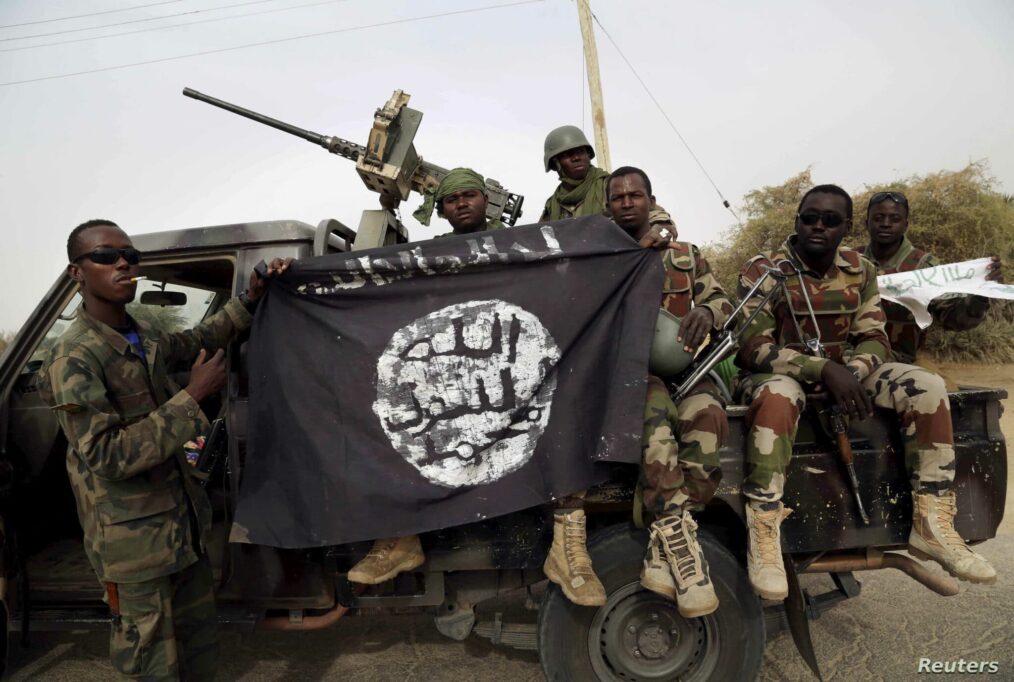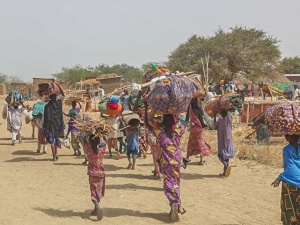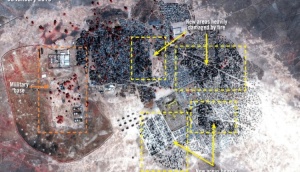Nigeria has benefited from several projects and programs, all aimed at resolving the issue of insecurity including, addressing identified root causes and engendering factors. While these efforts seem promising, over time, one realizes its temporal traits. Being a significant player with yielding influence in Africa, Nigeria must understand all that is at stake for the continent if it fails to address its internal problems.
Insecurity in Nigeria
Since its independence, Nigeria has experienced, at an ever-increasing pace, a series of conflicts and insurgencies. These conflicts have turned the budding land in the Sahel to a leading figure on the list of unstable regions in the continent. From political violence to ethnoreligious conflicts, social agitations, resource conflicts, and now radical extremism, the nation continues to navigate these issues in hopes of survival.
Having survived a terrifying civil war, as well as spates of violence and conflicts, one would expect that Nigeria’s resilience will lead to stability. But in reality, this is not the case, as fears that the worst is yet to come remain strong. It was, therefore, no surprise to many when events of extremism began to gradually build up in the northern region of Nigeria, with Boko Haram taking the lead.
In 2002, Mohammed Yusuf, a famous preacher and proponent of the Izala sect of Islam and the founder of Boko Haram, began to radicalize his followers in Maiduguri, Nigeria. Establishing a religious center and an Islamic school, Yusuf reached many people from poor backgrounds across the country. In no time, Yusuf’s teachings attracted many followers and expanded into other states including Yobe, where it established a base nicknamed ‘Afghanistan.’ The ‘Afghanistan’ base (just like other operation bases) enjoys a geographical advantage, as it is within close proximity to Nigeria’s borders, thus aiding their expansion into neighboring West African countries.
Responses to Insecurity and Terrorism
Almost always, the first response to quell reports of security disruptions in Nigeria is the use of force. Following this response is an attempt to create a lasting solution through program developments, usually aimed at management and recovery.
Many of these initiatives, such as the NYSC scheme (introduced in the aftermath of the civil war), the Amnesty program (focused on ending militancy in the Niger Delta), and the de-radicalization program, all fail to address root causes; instead, they manage the situation for as long as possible.
Consequently, we see a resurgence of the same issues across Nigerian regions: in eastern Nigeria, there is a reawakening of secession agitations by Biafra, in the Niger Delta, an increasing rate of crime and kidnappings, and in the North East, terrorism is growing with reports of abductees willingly returning to their captors.
Recommendations
Nigeria’s rising insecurity may remain unresolved until the government understands the importance of engaging and collaborating with relevant stakeholders in the country. Thus, while external aid has its role, the outcome may not be as desired, until every group in the country bears its responsibility and the right environment to execute them is created.
Collaborate with CSOs
Civil society and humanitarian organizations have been present in Nigeria for decades, closely collaborating with the Nigerian government to maintain security and stability. Their role in Nigeria’s security largely revolves around responding to conflict situations by offering relief support, spearheading mediation and reconciliation, and rehabilitating victims and perpetrators.
While these are commendable efforts, the government and these organizations need to take progressive steps to ensure appropriate mechanisms are in place to identify and address early warning signs of extremism and incitement.
Community Engagement
The role of the community has largely been ignored in Nigeria’s decision-making system, regardless of it being a democratic nation. A review is essential with relevant measures made effective immediately. The government should fully engage communities in various approaches to counter violent extremisms, as well as identify and prevent future cases.
Deliberate efforts to ensure a balanced representation of women and youth in counter-extremism approaches is necessary, as they introduce a unique perspective from a largely marginalized and vulnerable population.
Contingency Plans
As a nation whose primary responsibility entails protecting the lives and properties of its citizens, expecting a contingency plan is in place at all times is not out of the ordinary. Due to Nigeria’s porous borders, Boko Haram and other extremist groups are in an advantageous position. Unfortunately, even with the lessons learned from Boko Haram, Nigeria’s borders remain largely unprotected.
Address Root Causes
The impoverished state of the country and the northern regions, alongside poor tenets of its society, are some factors that aid extremists’ growth. Time and time again, we have seen extremist groups all over the world garner support from citizens by providing basic amenities that governments fail to supply. Some abductees who willingly returned to Boko Haram camps after being freed by Nigerian soldiers cited the harsh economic conditions as the reason they rejoined. The government must rise to its responsibility in driving development in Nigeria.
In addition to developmental challenges, other root causes such as intolerance and marginalization remain unaddressed. Intolerance remains a bane in Nigeria and is the bedrock for the many ethnoreligious conflicts and radicalism that Nigeria has suffered over the years. The government, alongside relevant national stakeholders, must find ways to address these root causes and allot as much attention to these challenges as they do for terrorist acts.
Conclusion
Resolving insecurity and terrorism in Nigeria does not require additional funds or aid; all that is needed is a reformation of its systems, structures, and values. Merely formulating policies without a system that allows and ensures effective implementation would yield no result; this remains the case with Nigeria.
Joan McDappa, Counter-Terrorism Research Fellow at Rise to Peace







